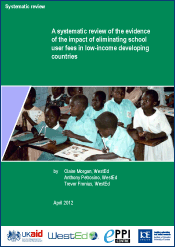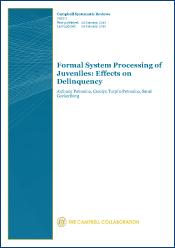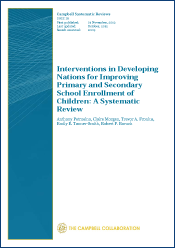A Systematic Review of the Evidence of the Impact of Eliminating School User Fees in Low-Income Developing Countries
Description
Low education attainment in many low-income developing countries can be attributed in part to the costs families incur when sending their children to public school. In addition to the indirect costs of lost work opportunities for the children, families may cover tuition and exam fees, books and uniforms, and community and parent–teacher association contributions.
These costs require impoverished families to make difficult decisions about which, if any, children to send to school and for how long. Many international development agencies and initiatives have argued for elimination of such fees. But does eliminating them make a difference in education outcomes? What is the evidence?
The authors of this report—WestEd’s Claire Morgan, Anthony Petrosino, and Trevor Fronius—conducted a systematic review of research on fee-related interventions in low-income developing countries that evaluated the elimination of school user fees paid by households.
Eligible studies had to meet the following criteria:
- The evaluation took place in a low-income developing nation as defined by the World Bank at the time of the intervention
- The evaluation assessed the impact of eliminating primary or secondary public or private school fees
Resource Details
Product Information
Copyright: 2013Format: PDF
Pages: 117
Publisher: EPPI-Centre, Social Science Research Unit, Institute of Education
Stay Connected
Subscribe to the E-Bulletin and receive regular updates on research, free resources, solutions, and job postings from WestEd.
Your download will be available after you subscribe, or choose no thanks.







